#working class hero
Text
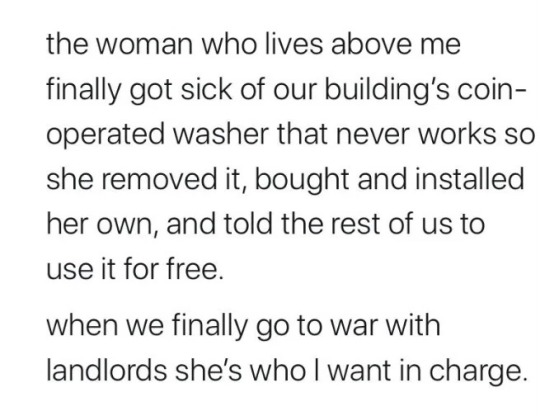
#working class hero#working class#landlords#landlords are bastards#rent strike#laundry#late stage capitalism#anti capitalism#capitalism#capitalist hell#anti capitalist love notes#writers strike#wga strike#actors strike#sag strike#global strike#workers strike
493 notes
·
View notes
Text
Something I like about Doctor Who is that instead of it being the type of story where the hero has to protect the status quo from a villain that is trying to reform the system the doctor is the one showing up like “this shit sucks. I’m overthrowing your government :)”
636 notes
·
View notes
Text

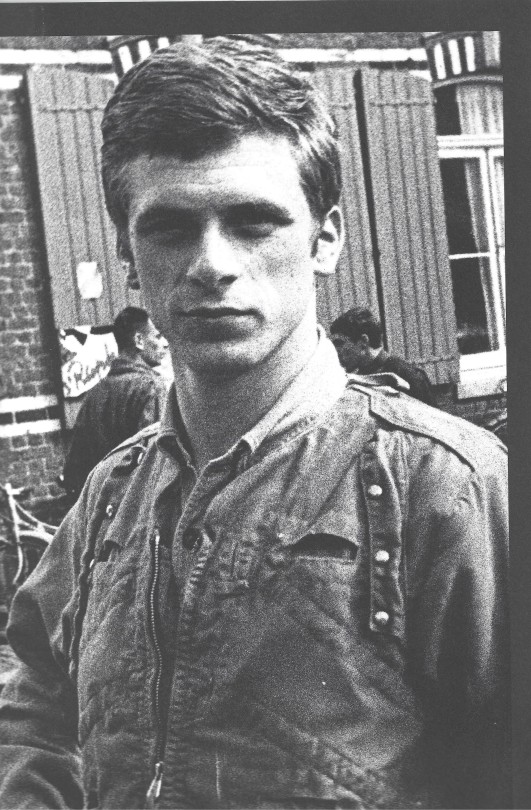

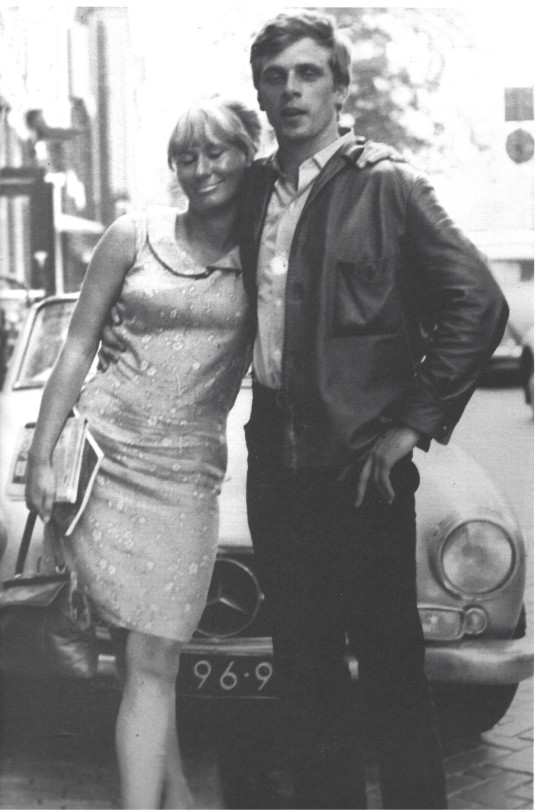

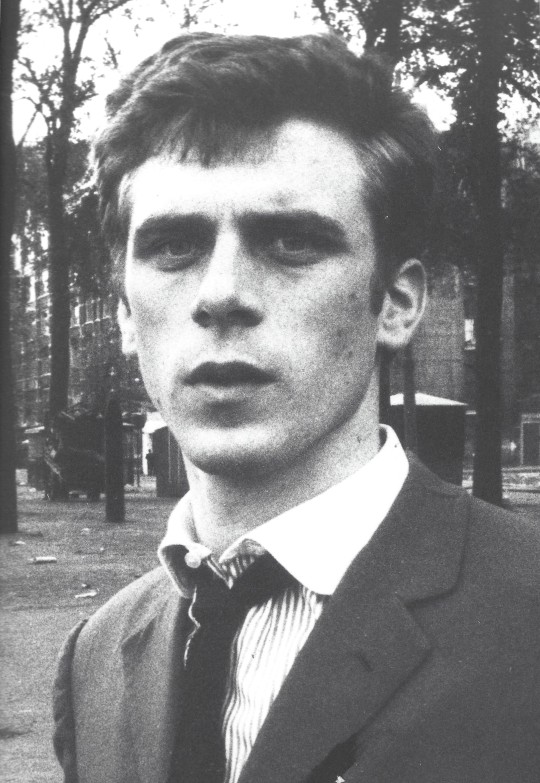

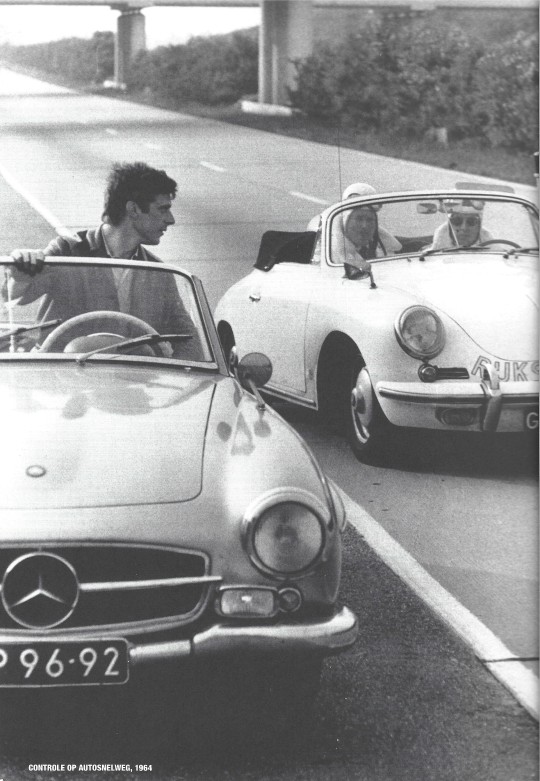


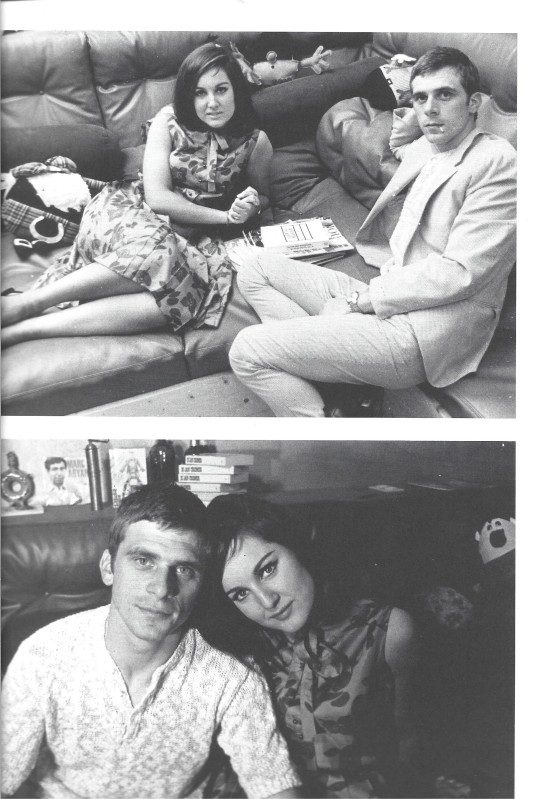

Working Class Hero
Jan Cremer gefotografeerd door Wim van der Linden
D'Jonge Hond, Harderwilk 2008, 96 pages, 24x32cm, ISBN 9789089100603
euro 50,00
Great photobook with photos of Jan Cremer by Wim van der Linden dated 1962-1973
Wim van der Linden wrote television history. He was co-creator of legendary television programs such as Hoepla and the Barend Servet show. He is much less known as a photographer. The photographer Wim van der Linden achieved less fame than contemporaries such as Ed van der Elsken. Yet his work will be found in more households than that of his photographic contemporaries. His portrait of writer Jan Cremer in a nozem outfit on a motorcycle is widely known. The cover of the unprecedented bestseller Ik, Jan Cremer belongs to the canon of the sixties.
28/10/23
#Jan Cremer#Wim van der Linden#working class hero#1962 1973#photography books#libri fotografia#fashionbooksmilano
9 notes
·
View notes
Photo
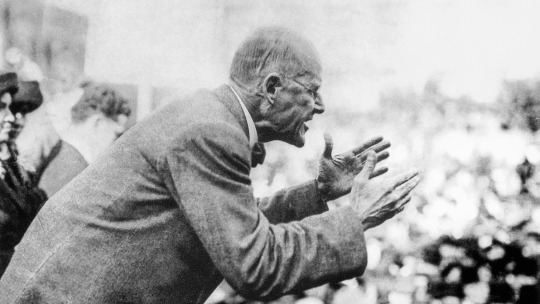
Eugene Debs
* * * *
Wars throughout history have been waged for conquest and plunder. In the Middle Ages when the feudal lords who inhabited the castles whose towers may still be seen along the Rhine concluded to enlarge their domains, to increase their power, their prestige and their wealth they declared war upon one another. But they themselves did not go to war any more than the modern feudal lords, the barons of Wall Street go to war. The feudal barons of the Middle Ages, the economic predecessors of the capitalists of our day, declared all wars. And their miserable serfs fought all the battles.
The poor, ignorant serfs had been taught to revere their masters; to believe that when their masters declared war upon one another, it was their patriotic duty to fall upon one another and to cut one another's throats for the profit and glory of the lords and barons who held them in contempt. And that is war in a nutshell. The master class has always declared the wars; the subject class has always fought the battles. The master class has had all to gain and nothing to lose, while the subject class has had nothing to gain and all to lose — especially their lives.
They have always taught and trained you to believe it to be your patriotic duty to go to war and to have yourselves slaughtered at their command. But in all the history of the world you, the people, have never had a voice in declaring war, and strange as it certainly appears, no war by any nation in any age has ever been declared by the people.
And here let me emphasize the fact — and it cannot be repeated too often — that the working class who fight all the battles, the working class who make the supreme sacrifices, the working class who freely shed their blood and furnish the corpses, have never yet had a voice in either declaring war or making peace. It is the ruling class that invariably does both. They alone declare war and they alone make peace.
Yours not to reason why;
Yours but to do and die.
That is their motto and we object on the part of the awakening workers of this nation.
If war is right let it be declared by the people. You who have your lives to lose, you certainly above all others have the right to decide the momentous issue of war or peace.
—Eugene V. Debs, The Canton, Ohio Anti-War Speech, published in The Call, June 16, 1918. Eugene Debs made his famous anti-war speech in Canton, Ohio, protesting World War I which was raging in Europe. For this speech he was arrested and convicted in federal court in Cleveland, Ohio under the war-time espionage law. He was his own attorney. His appeal to the jury and his statement to the court before sentencing are regarded as two of the great classic statements ever made in a court of law. He was sentenced to serve 10 years in prison.
42 notes
·
View notes
Text
youtube
Cat Power & Iggy Pop - Working Class Hero
3 notes
·
View notes
Text
Working Class Hero - John Lennon - 1970
youtube
4 notes
·
View notes
Photo

15 notes
·
View notes
Text
There's room at the top they are telling you still
But first you must learn how to smile as you kill
If you want to be like the folks on the hill
A working class hero is something to be
A working class hero is something to be
-John Lennon "Working Class Hero"
Who wants to bet that line started as "If you want to be like the fools on the hill"?
25 notes
·
View notes
Text





Gladis de Barbate, camiseta con diseño propio inspirado en el Pelotón del Pez Volador. Tallas disponibles: S - 3XL. Pincha aquí para comprar la tuya.
#gladys#gladis#orca#killer whale#gibraltar#barbate#sanlucar#surf#yatch#yate#working class hero#merchan#merch#shirt#tshirt
3 notes
·
View notes
Text
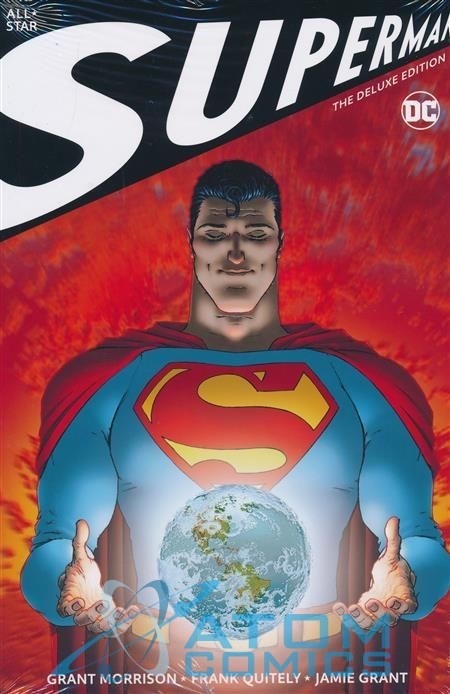
Honestly though Superman is goated af. Like/reblog if Superman is awesome, go fuck yourself if you think he's lame.
(that's a joke I completely respect your opinion and have nothing against you as a person) (even if that opinion is wrong).
3 notes
·
View notes
Text
instagram
2 notes
·
View notes
Text

6 notes
·
View notes
Photo

the motives might have something to do with the closeness to the royal barge canal that is more filled with cola cans than fish
part five on this wall here!
4 notes
·
View notes
Text
A few months ago, I listened to Working Class Hero and had a fleeting curiosity that went a little something like "is this about Paul?" Finally, after many a sleepless night, I composed this very rambly mess of my thoughts on the song, (mostly) line for line. This is all just speculation and thinking aloud. <3
My basic thought on WCH is that it’s John singing to/about Paul (and, to a lesser extent, himself).
As soon as you’re born, they make you feel small
I think this is a pretty broad statement and could apply to just about anyone, especially the working class, which this song claims to be directed toward. And I think it can apply directly to John and Paul as well. John’s father left at an early age, his mother was unable to take care of him, he stayed with his Aunt Mimi who was very rigid (x), teachers often got onto him and wrote him up for bad behavior (x), etc. Paul was the eldest of two sons and at the age of 14, his mother passed away, which – understandably – caused emotional damage that has followed Paul around ever since. He took on the duties in the McCartney household that would be typical of a mother or older sister during this time period. Jim hitting him couldn’t have made it any easier to cope with the loss of his mother and developing his self-esteem / a secure self-image. In short, they both had difficult, emotionally strenuous childhoods. They were made to feel like they had no control in their lives. They both reacted quite differently to this. John leaned toward being more rebellious (hence the trouble in school), whereas, for Paul, this manifested as trying to seem well-put-together to outsiders.
Till the pain is so big, you feel nothing at all
This is the direct response of the tumultuous upbringings both men experienced. John numbed himself to feeling anything, especially after the death of his mother, Julia. And when his close friend Stuart died, he wouldn’t allow himself to be vulnerable enough to let out tears (x, x). Throughout his life, he struggled with addiction and substance abuse, and explained in 1971 that “I think if people are allowed to be a bit more free and express themselves, they wouldn’t have to inhibit themselves by taking drugs to not be hurt. People take drugs and drink so as they don’t feel what’s going on around them (x).” Paul himself battled with addiction throughout the 60s and onward – most notable was his use of cocaine during 1967, which he has said himself he enjoys the literal numbing effect of (x).
They hurt you at home and they hit you at school
Neither John nor Paul had the best relationships with school or teachers. More specifically, though, Paul has described teachers as “perverts”, and his father seemed not to defend him when he thought he was mistreated by authority figures in the school setting (x).
They hate you if you’re clever…
John is known for being witty and sly and having a mouth that got him into trouble.
...and they despise a fool.
The Fool is an archetype that many associate with Paul, an obvious result of his song "The Fool On The Hill" from Magical Mystery Tour. He has explained that he got the inspiration for this song from the tarot card, The Fool, which represents "the innocent" – the fool appears here in WCH, and is a recurring symbol in John's and Paul's songs. I think Paul saw The Fool as something he wished to be more like. Paul, I believe, saw himself as somehow tainted or guilty (by drugs, by the way other people treated him, by his own identity, etc.), and thus perceived the image of The Fool as something he hoped to portray, especially during the 60s. I also would like to mention that The Fool can represent new beginnings, starting over, and believing that the universe will put you where you need to be. The Fool is often the protagonist in the story outlined in the tarot deck. It is labeled as card zero in the deck.
They’ve tortured and scared you for twenty-odd years
I don't have much to add to this except that Paul was around twenty years old when he chose John over his father, Jim (x).
Then they expect you to pick a career
Paul has been asked many times what he would have been if music hadn’t worked out. He has contemplated being a lorry/truck driver, a teacher, and his mother wanted him to be a doctor, while his father would have loved for him to be a scientist. But, in the end, he always said that there was nothing else he wanted to do more than music; John also has been asked that same question, only to respond by saying that he wanted to be rich, but, mostly, he wanted to make music, to be a Beatle (x). Also: (x).
Keep you doped with religion, and sex, and tv
This line reminds me specifically of the "more popular than Jesus" article (yes, the one that Americans blew way out of proportion and burned records and threatened The Beatles over). It was written by Maureen Cleave, a friend of the group; she wrote four different articles, one for each of the members to describe little bits of their lives. The article she wrote about John described what a typical day may look like for him, and it described him as "the laziest person in England" and as being surrounded by material belongings that hold fairly little substance: "One feels that his possessions – to which he adds daily – have got the upper hand…" In the article, the conversation of religion also comes up, which later became a huge controversy throughout their 1966 American tour. "If I'd said television is more popular than Jesus, I might have got away with it. I pointed out that fact in reference to England: that we meant more to kids than Jesus did. Or religion. At that time. I wasn't knocking it or putting it down, I was just saying it as a fact. And it sort of- it is true, especially more for England than [the U.S.] (x)." Reading the article and listening to John talk about it afterwards only strengthens the connection to that controversy in The Beatles' careers and what he was describing in WCH. It seems that he believed religion and TV were used to keep people in a sedated mindset, essentially making them easy to control – being fed certain media, causing them to be numb or unaware of the world around them / different perspectives, etc. As for the mention of sex, I believe this relates more to Paul, who was known to live the bachelor lifestyle throughout the 60s, whereas, during the same time period, John is not known to have had as many casual sexual relationships with women (x).
And you think you’re so clever and classless and free
I think this could be a rag on Paul, who often surrounded himself with people who were from higher social standings than the one from which he came (x).
But you’re still fucking peasants as far as I can see
But John calls him out, saying that – deep down – Paul is still the same working class person he has always been, no matter the people he spends his time with or the amount of money he has, etc. I think this could also be a dig at Paul's wife Linda, who John wasn't very fond of (x).
“There’s room at the top,” they are telling you still
I believe this is John calling out Paul's habit of constantly aspiring to fit in with higher class people.
But first you must learn how to smile as you kill
And this is John kind of saying that, in order to make it to the figurative top of society, Paul must put on a façade that has the ability to sever other, more genuine relationships.
If you want to be like the folks on the hill
Sounds oddly similar to "the fool on the hill" + it's a reference to the fact that Paul is still on a seemingly asinine, endless journey to become something he isn't.
If you want to be a hero, well just follow me
Calling for Paul to return to John, to follow him again instead of people like Tara or Jane or Robert or Linda. I think, possibly, this is an attempt to remind Paul that he and John are more alike than anyone else. And that there's no purpose in following someone who doesn't get him.
#this is purely me taking a little thought and blowing it up#it's not organized perfectly so i might edit the format later#working class hero#plastic ono band#john lennon#paul mccartney#the beatles#lyrics#1970#lennon/mccartney#john and paul#mclennon
41 notes
·
View notes
